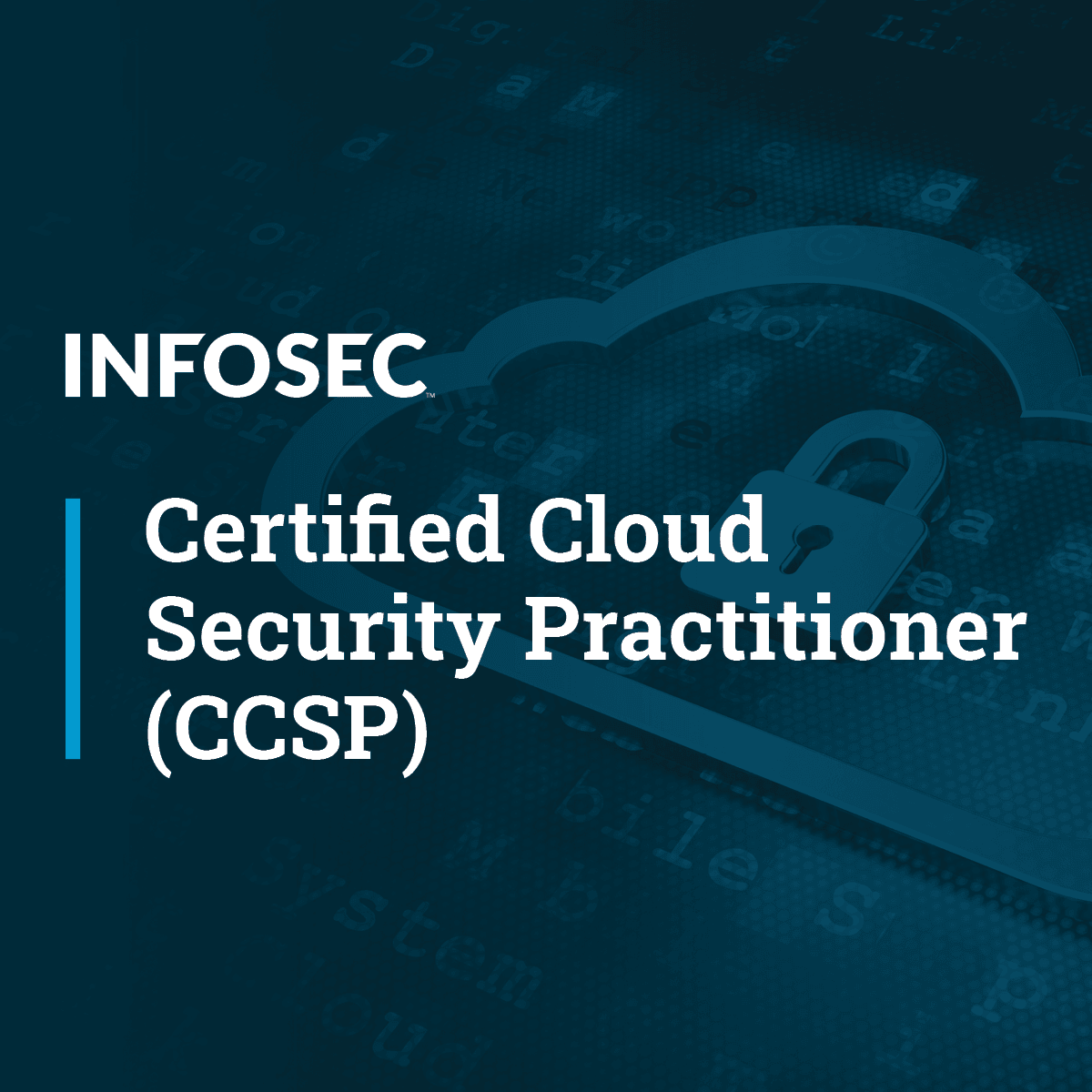Cloud Security Manager
Understanding the Role of a Cloud Security Manager
A Cloud Security Manager is a specialized cybersecurity professional responsible for safeguarding an organization's data, applications, and infrastructure hosted in cloud environments. As businesses increasingly migrate their operations to cloud platforms like Amazon Web Services (AWS), Microsoft Azure, and Google Cloud Platform (GCP), the need for robust security measures managed by skilled experts has become paramount. This role involves developing, implementing, and overseeing security strategies tailored to the unique challenges and opportunities presented by cloud computing.
Working as a Cloud Security Manager can be exciting, placing you at the forefront of technological innovation and defense. You'll be involved in designing resilient security architectures, responding to sophisticated cyber threats, and ensuring sensitive data remains protected against unauthorized access. The role often requires strategic thinking, deep technical knowledge, and strong leadership skills to navigate the complex landscape of cloud security and compliance.
Introduction to Cloud Security Management
Defining the Cloud Security Manager Role
At its core, a Cloud Security Manager focuses on protecting digital assets within cloud environments. This encompasses a wide range of activities, from configuring security controls on cloud platforms to establishing policies and procedures that govern data access and usage. They work to ensure the confidentiality, integrity, and availability of information stored and processed in the cloud.
The scope of cloud security management is broad. It includes identity and access management (IAM), data encryption, network security within the cloud, vulnerability management, and security monitoring. A manager in this field must understand the shared responsibility model specific to each cloud provider, delineating where the provider's security duties end and the customer's begin.
This role requires a blend of technical expertise in cloud platforms and cybersecurity principles, along with managerial skills to lead security initiatives and communicate risks effectively to stakeholders across the organization.
The Evolution Driven by Cloud Adoption
The rise of cloud computing has fundamentally changed how organizations operate and, consequently, how they approach security. Initially, security concerns were a major barrier to cloud adoption. However, as cloud providers enhanced their security offerings and businesses recognized the benefits of scalability and flexibility, the migration accelerated.
This shift demanded a new type of security professional—one who understands not just traditional network security but also the nuances of virtualized infrastructure, containerization, and serverless computing. The Cloud Security Manager role evolved from traditional IT security roles to address these specific needs, becoming increasingly specialized.
Today, with the prevalence of hybrid and multi-cloud strategies (using multiple public and private clouds), the complexity continues to grow. Cloud Security Managers must now navigate diverse environments, ensuring consistent security posture and compliance across different platforms.
Core Objectives: Protection, Compliance, and Mitigation
The primary goal of a Cloud Security Manager is to protect sensitive organizational data residing in the cloud. This involves implementing robust encryption, access controls, and data loss prevention (DLP) measures to prevent breaches and unauthorized disclosures.
Ensuring compliance with relevant regulations and industry standards is another critical objective. Managers must navigate frameworks like GDPR, HIPAA, PCI DSS, and SOC 2, implementing controls and facilitating audits to demonstrate adherence. This often involves translating complex legal and regulatory requirements into actionable technical security measures.
Finally, effective threat mitigation is essential. Cloud Security Managers develop strategies for detecting, responding to, and recovering from security incidents. This includes continuous monitoring for suspicious activities, planning for incident response, and conducting post-mortem analyses to improve defenses against future attacks.
Key Responsibilities of a Cloud Security Manager
Designing and Implementing Cloud Security Architectures
A central responsibility is the design and implementation of secure cloud architectures. This involves selecting appropriate security controls offered by cloud providers (like security groups, network ACLs, WAFs) and configuring them according to best practices. The architecture must align with the organization's risk tolerance and business objectives.
Managers work closely with IT and development teams to integrate security into the cloud deployment lifecycle (DevSecOps). This ensures that security considerations are addressed early in the development process, rather than being bolted on later. They define security standards and blueprints for deploying new cloud services securely.
This requires a deep understanding of cloud networking, identity management solutions, data protection mechanisms, and infrastructure-as-code (IaC) principles to automate secure configurations.
These courses provide foundational knowledge and practical skills for securing cloud environments, particularly focusing on architecture and risk management.
This book offers a comprehensive guide to securing cloud computing environments, covering architecture and design principles.
Incident Response and Breach Investigations
When security incidents occur, the Cloud Security Manager leads the response effort. This involves developing and maintaining an incident response plan specifically tailored for cloud environments. The plan outlines procedures for detection, containment, eradication, recovery, and post-incident analysis.
During an incident, the manager coordinates the response team, analyzes logs and forensic data from cloud services, and communicates updates to leadership and relevant stakeholders. They work to minimize the impact of the breach and restore normal operations quickly and securely.
Post-incident, they oversee investigations to determine the root cause, document findings, and implement corrective actions to prevent recurrence. This requires skills in digital forensics, log analysis, and crisis management.
Vendor Risk Management for Third-Party Cloud Services
Organizations often rely on various third-party Software-as-a-Service (SaaS), Platform-as-a-Service (PaaS), and Infrastructure-as-a-Service (IaaS) providers. The Cloud Security Manager is responsible for assessing and managing the security risks associated with these vendors.
This involves conducting due diligence before onboarding new vendors, reviewing their security certifications (like SOC 2 reports), understanding their security practices, and negotiating security requirements in contracts. Continuous monitoring of vendor security posture is also crucial.
Effective vendor risk management ensures that dependencies on external services do not introduce unacceptable security vulnerabilities into the organization's environment.
Cross-Departmental Collaboration Strategies
Cloud security is not solely the responsibility of the security team; it requires collaboration across the organization. The Cloud Security Manager must work effectively with IT operations, development teams, legal counsel, compliance officers, and business units.
They educate other departments on cloud security best practices, policies, and their roles in maintaining security. Building strong relationships and communication channels is key to fostering a security-aware culture.
This collaboration ensures that security requirements are understood and integrated into business processes, application development, and IT operations, leading to a more holistic and effective security posture.
Industry Demand and Market Trends
Growth Projections for Cloud Security Roles (2025-2030)
The demand for Cloud Security Managers and related roles is expected to experience significant growth in the coming years. The overall cloud computing market is projected to expand substantially, reaching an estimated USD 1.3 trillion by 2030, growing at a CAGR of 15% from 2025 to 2030. This rapid expansion directly fuels the need for professionals skilled in securing these cloud environments.
The U.S. Bureau of Labor Statistics (BLS) projects employment for the broader category of computer and information systems managers to grow 17% from 2023 to 2033, much faster than the average for all occupations. Within cybersecurity specifically, the demand is even more acute. Some sources estimate the cybersecurity job market will grow by over 30% in the coming decade, with potentially millions of unfilled positions globally by 2025. This indicates a robust and growing demand for cloud security expertise through 2030 and beyond.
Reports like the World Economic Forum's Future of Jobs Report 2025 highlight security management specialists as a key area of anticipated job growth through 2030, driven by technological advancements and increasing concerns over data breaches. This strong outlook makes cloud security management a promising field for career planners.
Impact of Hybrid/Multi-Cloud Environments on Hiring
The increasing adoption of hybrid (mixing private and public clouds) and multi-cloud (using multiple public cloud providers) strategies significantly impacts hiring trends. These complex environments require security professionals who can manage security consistently across diverse platforms.
Managing multiple cloud providers introduces challenges like varying security configurations, inconsistent policies, and a larger attack surface. This drives demand for managers skilled in creating unified security frameworks, managing cross-platform visibility, and navigating the specific security tools and nuances of different providers like AWS, Azure, and GCP.
Organizations often struggle to find personnel with the broad expertise needed for these complex setups, sometimes leading to skills gaps and increased hiring costs. Therefore, candidates proficient in securing hybrid and multi-cloud architectures are particularly sought after in the current market.
Geographic Hotspots for Cloud Security Employment
While demand for cloud security professionals is global, certain geographic areas stand out as major employment hubs. In the United States, traditional tech centers like Silicon Valley, Washington D.C., New York City, Seattle, and Austin remain prominent.
Europe also boasts significant hotspots, including London, Berlin, Amsterdam, Dublin, and cities in Switzerland and the Netherlands. These locations often offer competitive salaries for experienced professionals.
In Asia, Singapore, Tokyo, and Bangalore are rapidly emerging as key centers for cybersecurity talent, driven by digital transformation initiatives across the region. Opportunities exist in both large multinational corporations and dynamic startups within these global hotspots.
Influence of AI/ML on Automation in Security Workflows
Artificial Intelligence (AI) and Machine Learning (ML) are increasingly influencing cloud security workflows, particularly through automation. AI/ML systems excel at analyzing vast amounts of security data to detect anomalies, identify emerging threats, and predict potential vulnerabilities faster and more accurately than human analysts alone.
These technologies enable the automation of tasks like threat intelligence gathering, security alert prioritization, and even incident response actions (e.g., isolating compromised systems). This automation helps security teams scale their efforts, reduce response times, and focus on more complex strategic issues.
However, the integration of AI/ML also introduces new challenges, such as potential biases in algorithms, the need for explainable AI, managing dependencies on automated systems, and securing the AI models themselves from attack. Cloud Security Managers will need to understand how to leverage AI/ML tools effectively while managing these associated risks. Reports suggest organizations using AI and automation see significant reductions in breach lifecycles and costs.
Formal Education Pathways
Relevant Bachelor’s Degrees: Computer Science vs. Cybersecurity
A bachelor's degree is often the minimum educational requirement for entry-level positions that can lead to a Cloud Security Manager role. Common degree paths include Computer Science, Information Technology, and Cybersecurity. A Computer Science degree provides a broad foundation in computing principles, programming, and systems, which is highly valuable.
A dedicated Cybersecurity degree focuses specifically on security principles, practices, and technologies. This specialized knowledge can be advantageous for directly entering the security field. Both degree types offer relevant coursework, but the best choice may depend on individual interests and career goals.
Regardless of the specific major, coursework in networking, operating systems, databases, programming, and information security fundamentals is crucial. Supplementing formal education with practical experience and certifications is also highly recommended.
Graduate Programs with Cloud Security Specializations
For those seeking deeper expertise or aiming for leadership roles, a master's degree can be beneficial. Many universities now offer Master of Science (MS) programs in Cybersecurity, Information Assurance, or Computer Science with specializations or concentrations in cloud security.
These programs delve into advanced topics like cloud architecture security, advanced threat analysis, cryptography, compliance frameworks specific to the cloud, and security management strategies. Graduate studies often involve research projects or theses, allowing students to explore specific areas of interest in depth.
An advanced degree can enhance qualifications, potentially leading to higher starting salaries and faster career progression, although practical experience often remains a key factor for employers.
Research Areas for PhDs
For individuals interested in research, academia, or cutting-edge roles in industry R&D, pursuing a PhD offers opportunities to contribute to the frontiers of cloud security. Research areas are diverse and constantly evolving alongside technology.
Potential PhD research topics include developing novel security protocols for multi-cloud environments, applying AI/ML for advanced threat detection and automated response, securing serverless and containerized applications, exploring privacy-preserving techniques in the cloud, and addressing the security implications of emerging technologies like quantum computing on cloud cryptography.
Other areas might focus on formal methods for verifying cloud configurations, improving security for Internet of Things (IoT) devices connected to the cloud, or investigating ethical considerations and bias in AI-driven security systems.
Capstone Project Examples Aligning with Industry Needs
Capstone projects, often required in undergraduate and graduate programs, provide students with valuable hands-on experience. Aligning these projects with real-world industry needs can significantly enhance a student's portfolio and job prospects.
Examples of relevant capstone projects include designing and implementing a secure multi-tier application on a major cloud platform (AWS, Azure, GCP), developing an automated compliance checking tool for cloud configurations against standards like CIS Benchmarks, or creating a simulated environment to analyze the effectiveness of different cloud intrusion detection systems.
Other projects could involve building a secure data pipeline using cloud services, investigating the security of specific cloud services (e.g., serverless functions, managed databases), or developing a risk assessment framework for migrating legacy systems to the cloud.
Skill Development Through Online Learning
Building Hands-on Labs Using Cloud Provider Sandboxes
Online learning offers flexible and accessible pathways to develop practical cloud security skills. A key advantage is the ability to engage in hands-on labs. Major cloud providers like AWS, Azure, and Google Cloud offer free tiers or sandbox environments where learners can experiment with services and security configurations without incurring significant costs.
Online courses often incorporate guided labs that walk learners through setting up secure networks, configuring identity and access management (IAM) policies, implementing encryption, and deploying security monitoring tools. Building these skills in a practical setting is essential for translating theoretical knowledge into real-world competence.
Platforms like OpenCourser's Cloud Computing section list numerous courses that provide opportunities for hands-on practice, allowing learners to build confidence and proficiency with cloud platform security features.
Curriculum Sequencing for Skills
Structuring an online learning path effectively is important. Learners should start with foundational concepts in networking, operating systems, and general cybersecurity principles before diving into cloud specifics. Understanding core IT concepts provides the necessary context for cloud security challenges.
Next, focusing on core cloud concepts and the specifics of at least one major provider (AWS, Azure, or GCP) is recommended. This includes understanding their infrastructure, services, and the shared responsibility model. Courses covering threat modeling, risk assessment, and compliance frameworks provide a strategic perspective.
Finally, learners can delve into specialized topics like securing containers and microservices, DevSecOps practices, advanced monitoring and incident response techniques, and specific security tools. OpenCourser's search features and saved lists can help learners organize their curriculum.
Open-Source Tool Proficiency
Beyond vendor-specific tools, proficiency with open-source security tools is highly valuable for Cloud Security Managers. These tools often provide cost-effective alternatives or complementary capabilities for security assessment, monitoring, and automation.
Examples include tools like CloudSploit (now Aqua Security Cloud Security Posture Management) for automated security and compliance checking, Pacu for AWS exploitation framework testing, or various tools for network scanning, vulnerability assessment, and log analysis within cloud environments.
Online courses and communities often provide tutorials and guidance on using these tools effectively. Familiarity with such tools demonstrates practical skills beyond relying solely on built-in cloud provider services.
Portfolio Development via Simulated Scenarios
Demonstrating skills to potential employers is crucial, especially for those transitioning careers or lacking formal experience. Online learning can facilitate portfolio development through projects and simulated scenarios. Many courses include capstone projects or hands-on challenges.
Learners can create projects such as setting up a secure multi-account structure in AWS, implementing a zero-trust architecture model in Azure, or performing a security assessment of a sample application deployed on Google Cloud. Documenting these projects thoroughly, explaining the security decisions made, and showcasing the outcomes can create a compelling portfolio.
Participating in online capture-the-flag (CTF) competitions focused on cloud security or contributing to open-source security projects are other excellent ways to gain experience and build a portfolio that showcases practical abilities.
These books provide practical guidance and insights into cloud security practices, helpful for building real-world skills.
Certifications for Cloud Security Managers
Vendor-Specific vs. Vendor-Neutral Certifications
Certifications are highly regarded in the cloud security field and can significantly validate skills and knowledge. They generally fall into two categories: vendor-specific and vendor-neutral.
Vendor-specific certifications focus on a particular cloud provider's platform, such as AWS Certified Security - Specialty, Microsoft Certified: Azure Security Engineer Associate, or Google Cloud Certified - Professional Cloud Security Engineer. These demonstrate deep expertise in securing a specific ecosystem.
Vendor-neutral certifications, like the Certified Cloud Security Professional (CCSP) from (ISC)² or the Certificate of Cloud Security Knowledge (CCSK) from the Cloud Security Alliance, cover broader cloud security concepts applicable across different platforms. Both types are valuable, and the best choice often depends on an individual's role and the technologies their organization uses.
Certification Pathways for AWS/Azure/GCP Environments
Each major cloud provider offers a tiered certification path for security professionals. For AWS, the path might start with foundational certifications, move to the AWS Certified Solutions Architect - Associate, and culminate in the AWS Certified Security - Specialty.
Microsoft Azure's path often includes the Azure Fundamentals and Azure Security Engineer Associate (AZ-500) certifications, with further specializations available. Google Cloud's relevant certification is the Professional Cloud Security Engineer.
Preparing for these certifications typically involves a combination of hands-on experience, dedicated study using official guides and practice exams, and potentially taking specialized training courses. Many online courses are specifically designed to help learners prepare for these exams.
These courses and books are specifically designed to help prepare for major cloud security certifications.
Maintaining Certifications Through CPE Credits
Most cybersecurity certifications are not permanent; they require ongoing maintenance to remain valid. This typically involves earning Continuing Professional Education (CPE) credits within a specific timeframe (e.g., annually or every three years).
CPE credits can be earned through various activities, such as attending industry conferences, participating in webinars, taking further training courses, contributing to security research, writing articles, or volunteering for security organizations. This requirement ensures that certified professionals stay current with the rapidly evolving field of cloud security.
Organizations like (ISC)² provide detailed guidelines on qualifying activities and the number of CPEs required for certifications like the CCSP. Keeping certifications active demonstrates a commitment to continuous learning.
Emerging Certifications Addressing Zero-Trust Architectures
As security paradigms evolve, new certifications emerge to address modern approaches. Zero Trust Architecture (ZTA) is a prominent example. ZTA operates on the principle of "never trust, always verify," requiring strict verification for every user and device attempting to access resources, regardless of their location.
While dedicated, widely recognized ZTA certifications are still developing, existing certifications are incorporating ZTA concepts. Additionally, organizations like the Cloud Security Alliance offer resources and potential micro-credentials related to Zero Trust. Training providers are also developing courses focused specifically on implementing ZTA in cloud environments.
Staying aware of these emerging areas and related credentials can help Cloud Security Managers demonstrate expertise in cutting-edge security strategies.
Career Progression and Leadership Trajectories
Transitioning from SOC Analyst to Cloud Security Roles
Many individuals enter cloud security management after gaining experience in related IT or security roles. A common pathway is transitioning from a Security Operations Center (SOC) Analyst position. SOC Analysts gain foundational experience in monitoring security alerts, identifying threats, and initial incident response.
To transition, SOC Analysts should focus on acquiring cloud-specific knowledge and skills, perhaps through online courses or certifications focusing on AWS, Azure, or GCP security. Experience with cloud logging and monitoring tools (like CloudWatch, Azure Monitor, Google Cloud Logging) is particularly relevant.
Demonstrating initiative by working on cloud-related projects within their current role or pursuing personal projects can strengthen their candidacy for dedicated cloud security positions like Cloud Security Analyst or Engineer, which serve as stepping stones to management.
Building Executive Communication Skills for CISO-Track
For Cloud Security Managers aspiring to more senior leadership roles, such as Chief Information Security Officer (CISO), developing strong executive communication skills is crucial. This involves translating complex technical security issues into clear business risks and impacts that executives and board members can understand.
Effective communication includes presenting security strategies, justifying budget requests, reporting on security posture, and advising on risk management decisions in a concise and compelling manner. Skills in negotiation, influence, and building relationships across the organization are also vital.
Developing these skills often requires practice, mentorship, and potentially formal training in business communication or leadership. Excelling in communication is key to moving beyond technical management into strategic security leadership.
Metrics-Driven Leadership: Measuring Security ROI
Effective security leaders use data and metrics to demonstrate the value of their security programs and justify investments. Cloud Security Managers progressing towards leadership need to master metrics-driven approaches.
This involves defining key performance indicators (KPIs) and key risk indicators (KRIs) relevant to cloud security, such as time-to-detect threats, vulnerability remediation rates, compliance adherence levels, and incident response times. Tracking these metrics helps measure the effectiveness of security controls and identify areas for improvement.
Furthermore, managers must be able to articulate the return on investment (ROI) for security initiatives, often by quantifying risk reduction or cost avoidance (e.g., preventing potential breach costs). This requires blending technical understanding with business acumen.
Entrepreneurial Paths in Cloud Security Consulting
Experienced Cloud Security Managers possess valuable expertise that can be leveraged through entrepreneurial ventures. Starting a cloud security consulting practice is one potential path. Consultants advise organizations on developing cloud security strategies, implementing controls, achieving compliance, and managing risks.
This requires not only deep technical knowledge but also business development skills, client management abilities, and the capacity to stay abreast of the latest threats and technologies across multiple cloud platforms. Specializing in a niche area, such as security for specific industries or expertise in multi-cloud environments, can be advantageous.
While challenging, entrepreneurship offers autonomy and the potential for significant rewards for those with the right skills and drive.
Cloud Security Manager in Regulated Industries
GDPR vs. HIPAA Implementation Challenges
Operating in regulated industries like finance or healthcare introduces specific compliance requirements that Cloud Security Managers must address. Implementing frameworks like the General Data Protection Regulation (GDPR) for personal data privacy or the Health Insurance Portability and Accountability Act (HIPAA) for protected health information (PHI) presents unique challenges in the cloud.
Managers must ensure cloud configurations, data handling processes, and access controls meet the stringent requirements of these regulations. Challenges include managing data residency (ensuring data is stored in specific geographic locations), implementing robust encryption for data at rest and in transit, and ensuring appropriate agreements (like Business Associate Agreements under HIPAA) are in place with cloud providers.
Navigating the nuances of different regulations and mapping them to cloud provider controls requires specialized knowledge and careful planning.
Auditing Cloud Environments for Financial Regulators
The financial services industry is subject to strict regulatory oversight. Cloud Security Managers in this sector must prepare for and facilitate audits conducted by regulators (e.g., SEC, FINRA, central banks) or internal/external auditors assessing compliance with standards like PCI DSS or specific financial regulations.
This involves maintaining comprehensive documentation of security controls, configurations, policies, and procedures related to the cloud environment. Providing evidence of continuous monitoring, vulnerability management, access controls, and incident response capabilities is critical.
Managers need to understand auditor expectations and be able to demonstrate how cloud services and configurations meet regulatory requirements, often requiring collaboration with compliance and legal teams.
Sovereign Cloud Requirements in Government Sectors
Government agencies and organizations handling sensitive national data often face requirements for data sovereignty, mandating that data be stored and processed within national borders and potentially managed by personnel meeting specific citizenship or clearance criteria. This has led to the emergence of "sovereign clouds."
Cloud Security Managers in government or related sectors must navigate these requirements, which may involve using specific government-focused cloud regions (like AWS GovCloud or Azure Government) or specialized sovereign cloud offerings from local providers.
Ensuring compliance involves strict controls over data location, access management, and potentially using specific encryption or security services designed to meet government standards. Understanding the legal and geopolitical implications is crucial.
Third-Party Risk Assessments for Critical Infrastructure
Organizations managing critical infrastructure (e.g., energy, utilities, transportation) face heightened security scrutiny, including rigorous assessment of risks associated with third-party vendors, including cloud service providers.
Cloud Security Managers in these sectors must conduct thorough due diligence and ongoing monitoring of their cloud providers' security practices, resilience, and incident response capabilities. This often involves reviewing detailed security documentation, certifications (like FedRAMP in the US), and potentially conducting audits.
Ensuring that cloud providers meet the stringent security and availability requirements necessary for critical infrastructure operations is a key responsibility, often involving close collaboration with risk management and procurement teams.
Ethical Challenges in Cloud Security
Data Sovereignty vs. Global Cloud Architectures
The global nature of major cloud providers can create ethical tensions with data sovereignty laws and user expectations. While global architectures offer resilience and performance benefits, they can conflict with regulations requiring data to remain within specific geographic borders.
Cloud Security Managers may face dilemmas when balancing the operational advantages of global distribution with legal and ethical obligations regarding data location and cross-border data flows. Transparency with users and customers about where their data is stored and processed is an important ethical consideration.
Navigating these complexities requires a deep understanding of both technical capabilities (like data residency controls offered by providers) and the evolving landscape of international data privacy laws.
AI Bias in Automated Threat Detection Systems
As AI and machine learning become integral to cloud security for tasks like threat detection and anomaly identification, the potential for bias in these systems presents an ethical challenge. AI models trained on biased data may disproportionately flag certain types of legitimate traffic or users as malicious, leading to unfair treatment or denial of service.
Ensuring fairness and equity in AI-driven security systems is an emerging ethical responsibility. Cloud Security Managers need to be aware of potential biases in the tools they deploy, advocate for transparency from vendors, and implement processes to review and mitigate biased outcomes.
This involves understanding how AI models are trained and evaluated, and considering the potential societal impacts of automated security decisions.
Whistleblowing Protocols for Security Vulnerabilities
Security professionals, including Cloud Security Managers, may encounter situations where they discover significant security vulnerabilities or unethical practices within their own organization or at a cloud provider. Deciding how to report these issues presents ethical challenges.
Organizations should have clear internal reporting channels and whistleblower protection policies. However, if internal channels are ineffective or ignored, professionals may face difficult decisions about escalating concerns externally, balancing their ethical duty to protect users and data against potential repercussions.
Establishing clear ethical guidelines and supporting a culture where security concerns can be raised without fear of retaliation are important aspects of responsible security management.
Environmental Impact of Hyperscale Data Centers
The massive data centers that power cloud computing consume significant amounts of energy and resources, raising environmental concerns. While cloud providers are increasingly investing in renewable energy and efficiency measures, the overall environmental footprint of the cloud remains a growing ethical consideration.
Cloud Security Managers, while primarily focused on security, may be involved in discussions about resource optimization and efficiency as part of broader sustainability initiatives within their organizations. Choosing cloud providers with strong environmental commitments and optimizing resource usage can contribute positively.
Awareness of the environmental impact of technology choices is becoming an increasingly relevant aspect of responsible IT and security leadership.
This book delves into the critical intersection of security and privacy in the cloud, touching upon ethical considerations.
Frequently Asked Questions
Can network engineers transition without cloud experience?
Yes, network engineers possess a strong foundational skill set that is highly relevant to cloud security. Understanding networking principles (TCP/IP, routing, firewalls, DNS) is crucial for securing cloud environments. While direct cloud experience is beneficial, it can be acquired.
Network engineers looking to transition should focus on learning the specifics of cloud networking (e.g., AWS VPCs, Azure VNets, GCP VPC Networks), cloud security services, and concepts like Infrastructure as Code (IaC). Pursuing cloud certifications (like AWS Certified Advanced Networking – Specialty or vendor security certs) and gaining hands-on experience through online labs or personal projects can bridge the gap.
Many employers value the deep networking expertise engineers bring, recognizing that cloud skills can be learned. Highlighting transferable skills and demonstrating a commitment to learning cloud technologies are key for a successful transition.
How critical are programming skills for this role?
While not always strictly mandatory, programming or scripting skills are increasingly valuable for Cloud Security Managers. Automation is key in cloud environments, and skills in languages like Python, Go, or PowerShell enable managers to automate security tasks, analyze logs programmatically, and interact with cloud APIs.
Understanding code also helps in collaborating with development teams (DevSecOps) and assessing application security risks. Proficiency in Infrastructure as Code (IaC) tools like Terraform or CloudFormation, which involve declarative configuration languages, is also highly beneficial for managing secure cloud infrastructure.
While deep software development expertise isn't usually required, a foundational understanding of programming concepts and scripting ability significantly enhances a manager's effectiveness and career prospects in the cloud security domain.
Entry-level positions leading to cloud security management?
Direct entry into a Cloud Security Manager role is uncommon; it typically requires significant prior experience. Common entry points into the field that can lead to management include roles like Security Analyst, SOC Analyst, Security Engineer, Systems Administrator, or Network Engineer.
Gaining experience in one of these roles, particularly with exposure to cloud environments, provides the necessary foundation. Specializing further into roles like Cloud Security Analyst or Cloud Security Engineer is a typical progression. Building technical expertise, leadership skills, and potentially obtaining relevant certifications are steps towards a management position.
Focusing on continuous learning, seeking opportunities to lead projects or mentor junior staff, and demonstrating strategic thinking are important for advancing towards a Cloud Security Manager role.
Remote work prevalence in this field?
Remote work is quite prevalent in the field of cloud security management. Since the role primarily involves managing digital infrastructure and security policies, many tasks can be performed effectively from any location with a secure internet connection. The nature of cloud platforms themselves facilitates remote access and management.
Many technology companies and organizations across various sectors have embraced remote or hybrid work models, particularly for IT and cybersecurity roles. Job postings for cloud security positions frequently offer remote options or flexibility.
However, availability depends on the specific company culture, security requirements (some sensitive roles may require on-site presence), and the nature of team collaboration. Overall, cloud security offers strong potential for remote work arrangements.
Typical salary ranges by region/experience?
Salaries for Cloud Security Managers vary significantly based on experience, location, certifications, and the specific industry. Generally, it is a well-compensated field due to high demand and the required expertise. According to the BLS, the median annual wage for the broader category of computer and information systems managers was $171,200 in May 2024. Some sources indicate median pay closer to $160,000 or $164,000 annually for similar roles in recent years.
Entry-level management positions might start lower, while senior managers or those in high-cost-of-living areas or high-paying industries (like finance or tech) can earn considerably more, potentially exceeding $200,000 or even $250,000 annually, especially in tech hubs. European salaries, for instance in Germany or Switzerland, might range from €90,000 to €150,000 or higher depending on the country and role specifics.
Factors like holding advanced certifications (e.g., CCSP, CISSP) can positively influence salary negotiations.
Impact of quantum computing on career longevity?
Quantum computing poses a potential long-term threat to current cryptographic standards used extensively in cloud security (like RSA and ECC). When large-scale, fault-tolerant quantum computers become available, they could break much of today's encryption, requiring a transition to quantum-resistant cryptography (also known as post-quantum cryptography).
This transition represents a significant future challenge but also an opportunity for cloud security professionals. Rather than threatening career longevity, it creates a need for experts who understand post-quantum cryptography and can lead the migration efforts within cloud environments. Research and development in this area are ongoing.
Cloud Security Managers who stay informed about these developments and are prepared to adapt to new cryptographic standards will likely see their expertise become even more valuable in the future, ensuring career longevity in the face of this technological shift.
Embarking on or advancing a career as a Cloud Security Manager requires dedication, continuous learning, and a passion for tackling complex technological challenges. The field offers significant opportunities for growth and impact in protecting organizations' vital digital assets. With the right combination of education, practical skills, and strategic thinking, individuals can build a rewarding career in this dynamic and critical domain. Resources like OpenCourser can help learners find the courses and information needed to navigate this path successfully.

















